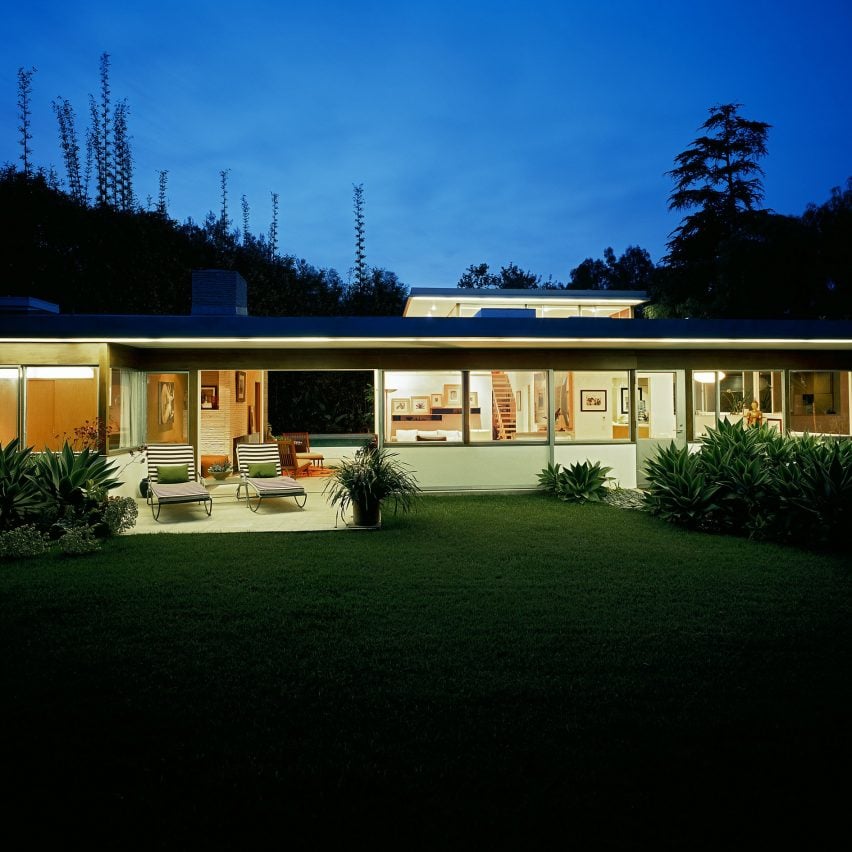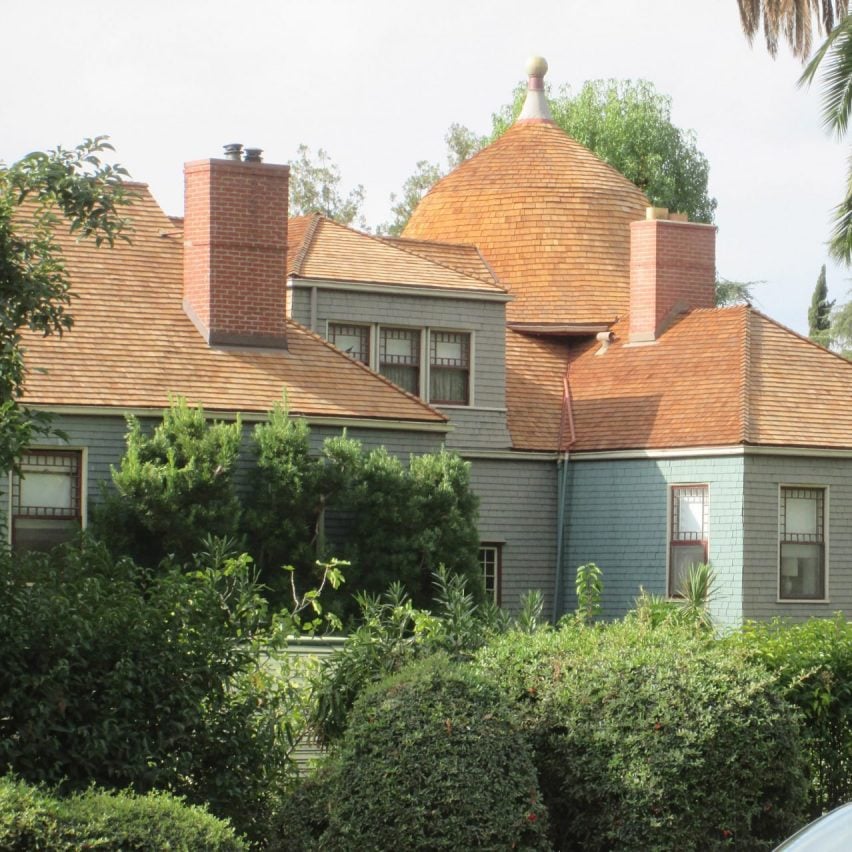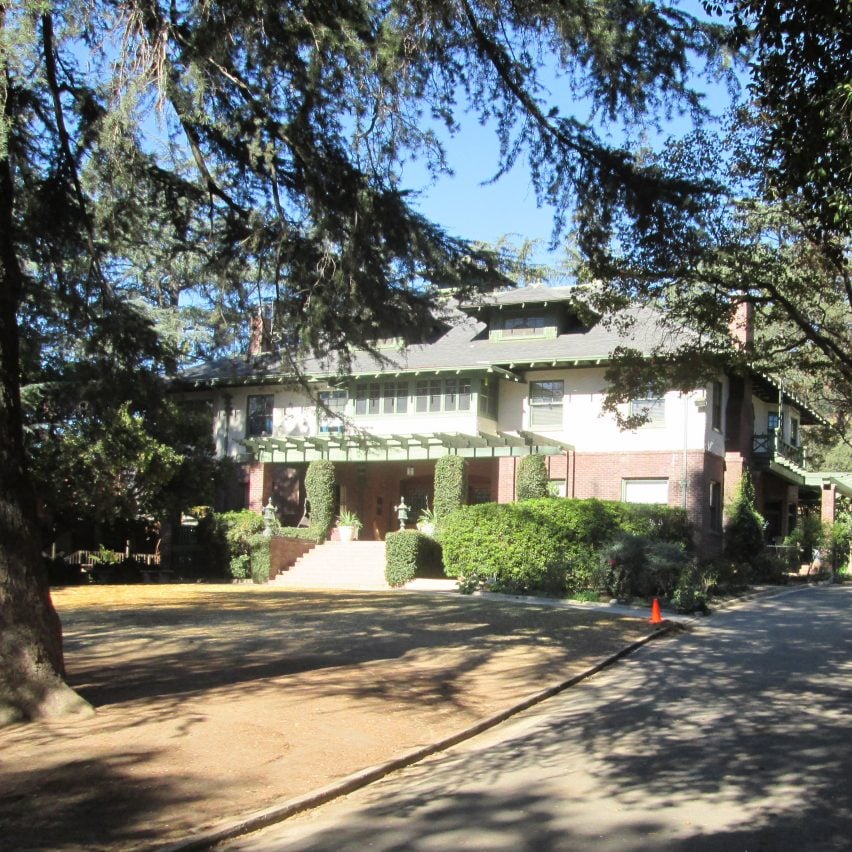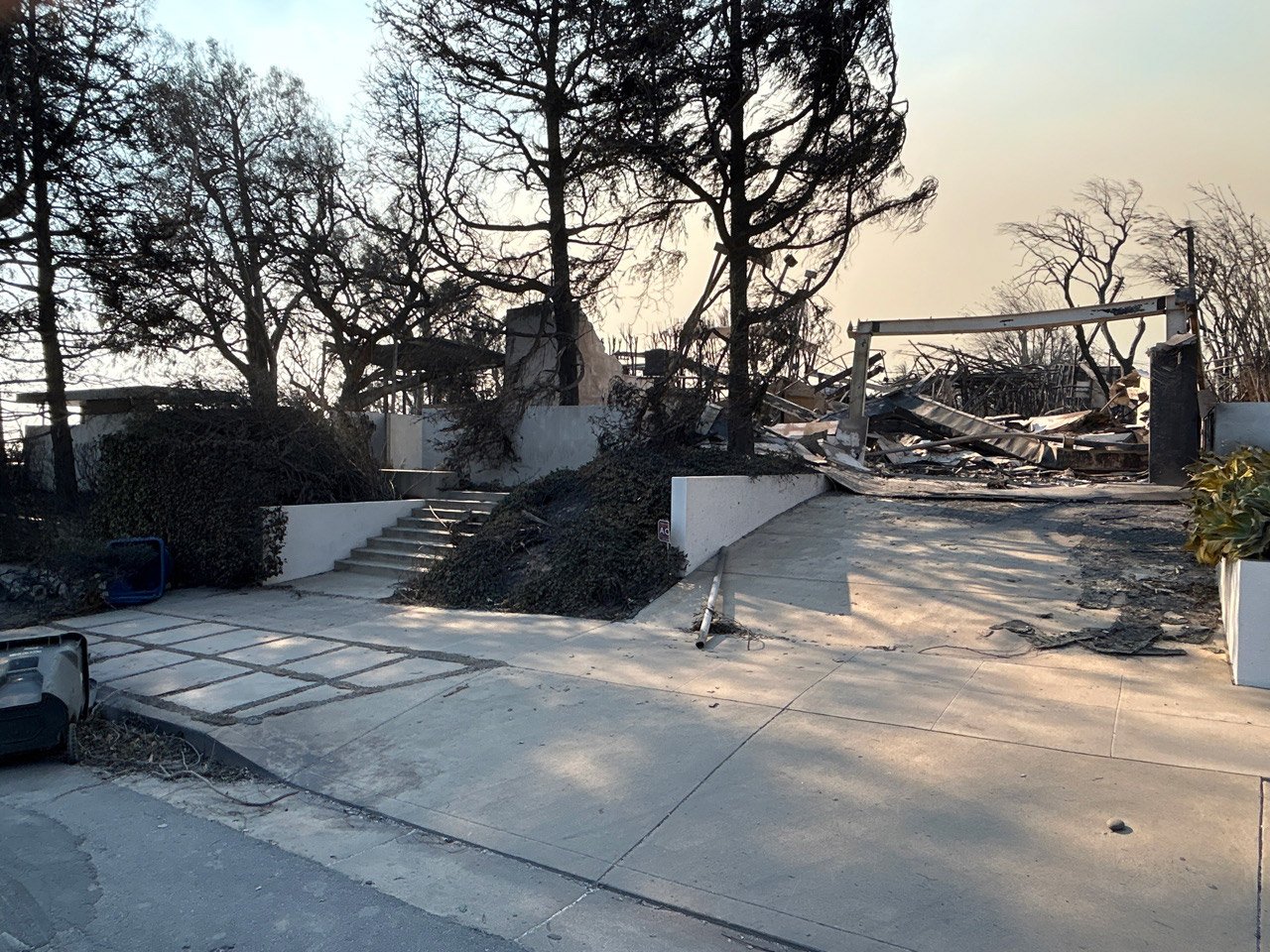Houses by Richard Neutra and Ray Kappe are among more than 12,000 structures lost in the ongoing fires in Los Angeles. Here, we roundup five of the most significant to have been destroyed.
The Palisades and Eaton fires are the two largest of the several fires that have caused at least 24 deaths and the destruction of more than 12,000 buildings in Los Angeles since they began early last week.
The fires, exacerbated by strong winds and drought conditions, have destroyed whole neighbourhoods, and hundreds of thousands of people have had to evacuate. Power outages and contaminated drinking water have affected thousands more.
As of today, increases in wind speeds threaten to expand the ongoing fires.
Groups such as the Los Angeles Conservancy and Save Iconic Architecture are tracking the status of buildings deemed iconic or noteworthy in the midst of the “unfathomable” damage in the city.
Many iconic structures that were under threat have now been marked safe including: Eames House and adjacent Eames Case Study Houses, Getty Villa, Craig Ellwood’s Hunt House in Malibu, Buff, Straub & Hensman’s Bass House and The Alfred Newman-Martha Montgomery House by Frank Lloyd Wright.
Meanwhile, officials have been compiling data on a house-by-house destruction report. Many of the destroyed modernist homes are located in Malibu and the Palisades, while the Eaton fire destroyed many historical Spanish Revival and Craftsmen-style homes in the town of Altadena.
Below are some of the most significant houses lost in the ongoing Palisades and Eaton fires:

The Benedict and Nancy Freedman House by Richard Neutra, Pacific Palisades
Renowned modernist architect Neutra designed this small house in 1949 for two screenwriters.
Built primarily with wood, the original structure had a single low volume with massive glass windows and clerestories. It was slowly expanded to become a two-level house over the years, remodelled by local studio Nonzero\architecture (studio bau:ton).
Robert Bridges House by Robert Bridges, Pacific Palisades
Architect Robert Bridges designed this home to cantilever off a cliffside in the neighbourhood, supported by massive concrete pillars.
It was built in the 1980s in the brutalist style but clad in California redwood.
Keeler House by Ray Kappe, Pacific Palisades
SCI-Arc founder Kappe built this home for a jazz musician in 1991, using his own house nearby as a reference.
The modern structure featured mostly wood construction and multiple tiers with terraces that cantilevered out towards the street. It was one of many Kappe designs to be destroyed, including the Culbert House in Malibu.

Andrew McNally House by Frederick L Roehrig, Altadena
Built for the president of technology company Rand McNally, this Queen Anne-style mansion in Altadena was one of the first significant works in the area and had become indicative of its late 19th-century architecture.
New York-born architect Frederick Louis Roehrig designed the house, constructing it out of mostly wood with massive rotundas on one side.

Scripps Hall by C W Buchanan, Altadena
Also known as the Pasadena Waldorf School, this Craftsman-style structure was designated on the National Historic Register.
The three-storey structure was made from wood and brick and featured the extruded rafters typical of the style when it was completed in 1904.
